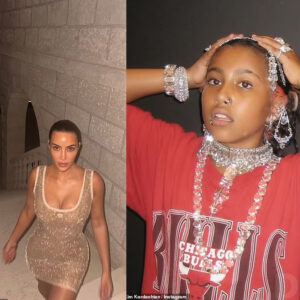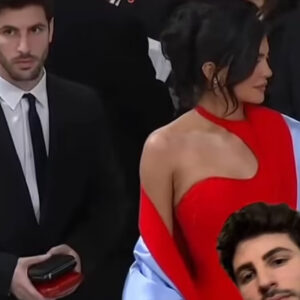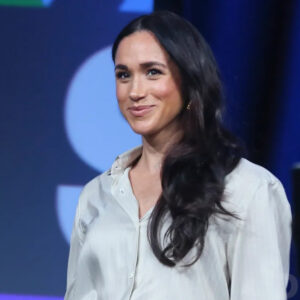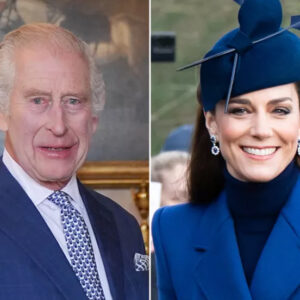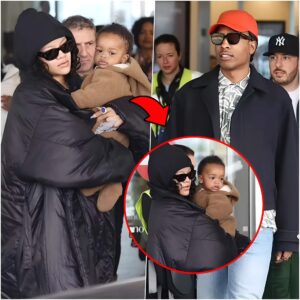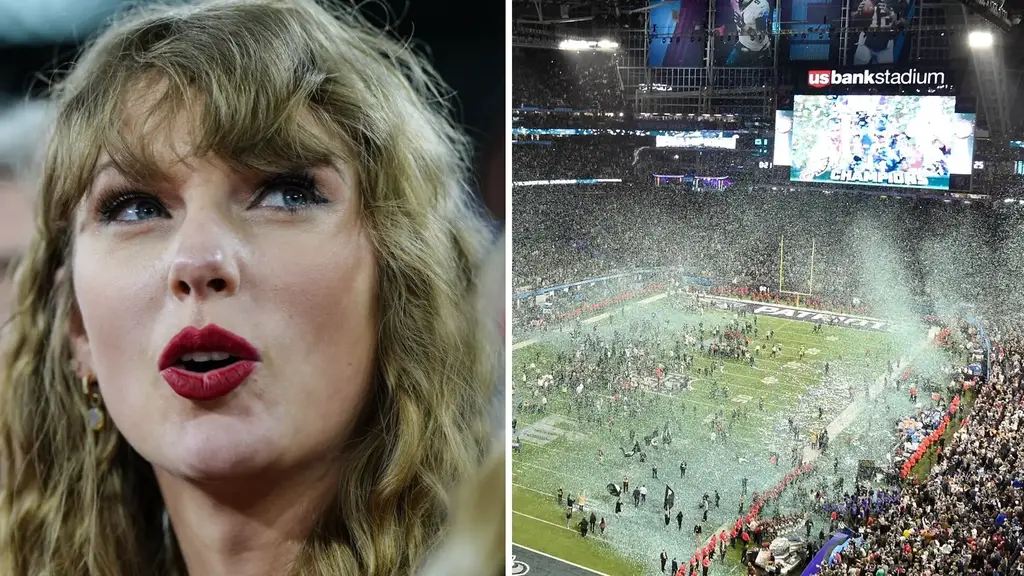
In a surprising turn of events, the National Football League (NFL) is reportedly considering banning pop superstar Taylor Swift from performing at the Super Bowl, with a high-ranking official quoted as saying, “We’re tired of Taylor Swift.” This news comes as a shock to many, given Swift’s immense popularity and her status as one of the world’s biggest music icons.
The reasons behind this potential ban are not entirely clear, but sources suggest it may stem from a desire to diversify the performers featured in the Super Bowl halftime show. Over the years, the event has seen a wide range of artists, but the NFL might be looking for something different this time around. The statement “We’re tired of Taylor Swift” implies a fatigue with the usual roster of mainstream pop stars and a possible shift towards more varied or unexpected musical acts.
Taylor Swift is a global phenomenon with a massive fan base, known for her catchy tunes, storytelling lyrics, and impressive stage presence. Her albums have consistently topped charts, and she has a slew of awards to her name. The idea of the NFL being “tired” of such a prominent figure raises questions about the criteria for selecting halftime show performers and what this means for the future of entertainment at one of the world’s most-watched sporting events.
Swift’s fans, known as “Swifties,” have expressed disbelief and disappointment at the news. Social media platforms have been flooded with messages of support for Swift, with fans arguing that her exclusion from the Super Bowl is a loss for the event. The strength of fan reactions highlights Swift’s impact on the music industry and her ability to connect with audiences worldwide.
The Super Bowl halftime show is a high-profile gig, known for its spectacular performances and a stage that can catapult artists to new heights of fame. Previous performers include legends like Michael Jackson, Prince, and Madonna, as well as recent stars like Beyoncé and The Weeknd. The NFL’s decision to potentially exclude Swift from this lineup suggests a shift in strategy or priorities for the halftime show.
The NFL’s reported comment and the consideration to ban Swift could have broader implications for the league’s image. It risks alienating a significant portion of the audience that follows both the sport and Swift’s music. The entertainment industry and sports world often overlap, and decisions like this can impact viewership and public perception.
While the exact reasons for the NFL’s stance are unknown, it’s worth considering whether politics or cultural shifts play a role. The entertainment industry, including high-profile events like the Super Bowl, often reflects broader societal trends. Swift’s outspoken political views and advocacy might be factors in the NFL’s consideration, though this is purely speculative.
The Super Bowl halftime show is not just a musical performance; it’s a significant business venture with substantial financial stakes. Advertisers pay top dollar for airtime during the game, and the halftime show is a major draw. The decision to potentially ban a major artist like Taylor Swift could have financial implications for the NFL and its partners.
While many are shocked by the NFL’s stance, some industry insiders and observers see it as a bold move. It could signify a willingness to take risks and introduce fresh elements to the Super Bowl entertainment lineup. This perspective suggests a dynamic and evolving approach to one of America’s most significant cultural events.
The NFL’s reported consideration to ban Taylor Swift from the Super Bowl halftime show has sparked a significant conversation about entertainment, celebrity influence, and the intersection of music and sports. Whether this decision reflects a strategic shift or other underlying reasons, it underscores the dynamic nature of public events and the unpredictable interactions between different cultural spheres.
As fans and observers await further details and official statements, this development serves as a reminder of the ever-changing landscape of entertainment and public preferences. Taylor Swift’s potential absence from the Super Bowl stage, for whatever reason, is a moment of reflection on the evolving nature of such a major event and what it signifies for the future of live entertainment in the sports realm.
News
Kim Kardashian credits North West, 10, for taking her sultry vacation pictures in Turks and Caicos
Kim Kardashian revealed her daughter North West, 10, was responsible for snapping her latest travel pictures from their tropical getaway to Turks and Caicos last week. While sharing a slew of envy-inducing…
EXCLUSIVE: Hunky Italian model says he’s been fired from working as greeter at Met Gala after his good looks upstaged Kylie Jenner during last year’s ceremony
An Italian model has revealed he’s been fired from working at this year’s Met Gala because his rugged good looks upstaged stars including Kylie Jenner. Eugenio Casnighi, 26, who…
‘Greedy’ Meghan Markle is ‘being laughed out of Hollywood’ by A-listers: source
Meghan Markle might be one of the most famous women on the planet — but Hollywood power players are purportedly less than impressed with her showbiz prowess….
Rihanna And ASAP Rocky: A Timeline Of Their Relationship
In 2020, it was reported that Rihanna and ASAP (or A$AP) Rocky had turned their friendship up a notch, elevating them to couple status. Following in the…
King Charles and Princess Kate’s Very Different Reactions to Cancer News
The royal family’s current health battles have “forced them to really think about what matters,” with King Charles III and Princess Kate channeling their focuses in two very different directions, Newsweek‘s chief…
A$AP Rocky Beats Rihanna While Trying To Protect His Side Chick From RiRi…
In a recent turn of events, A$AP Rocky finds himself making headlines not for his music but for his unexpected clash with Rihanna. The rapper, known for…
End of content
No more pages to load
Relative Articles
None found
